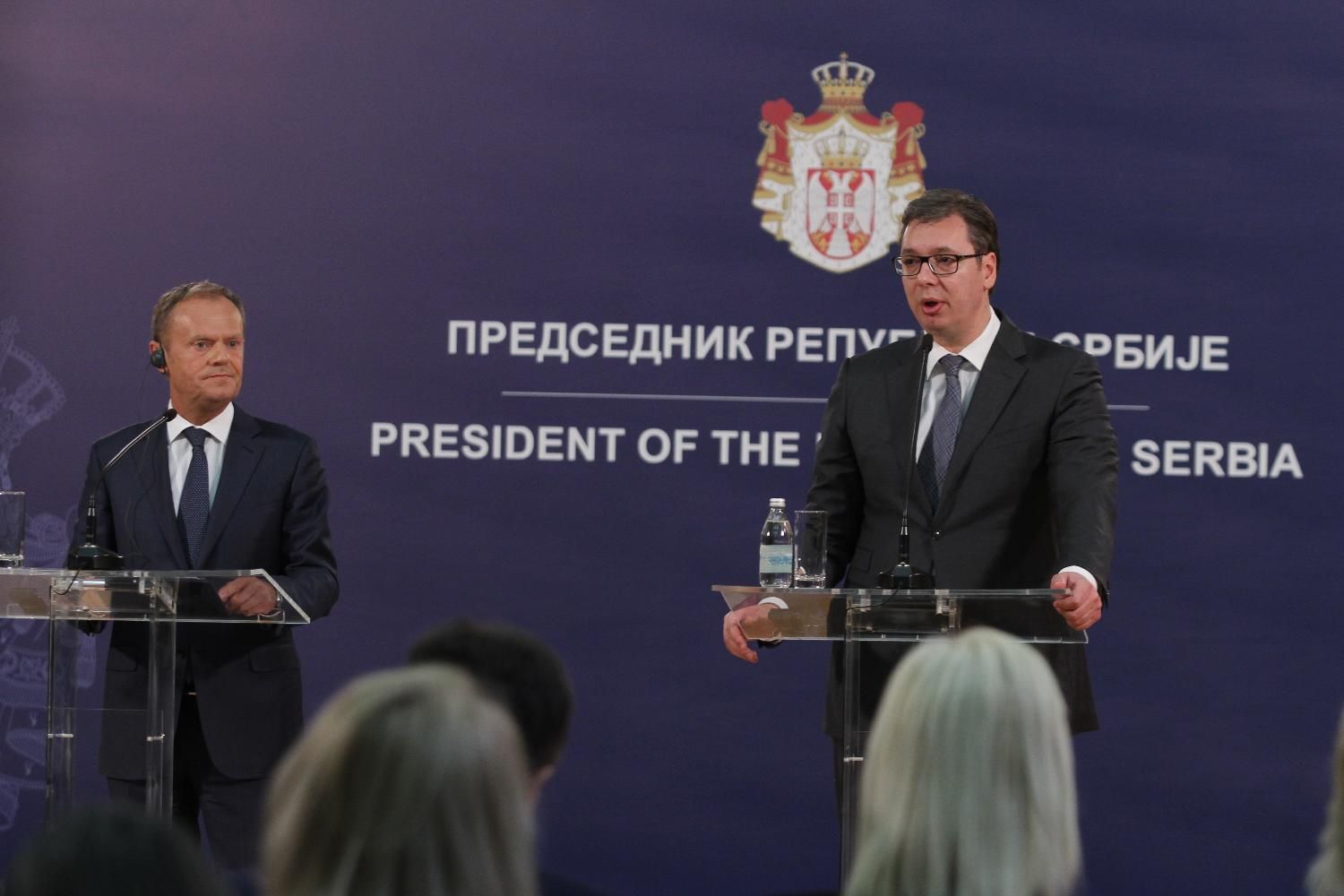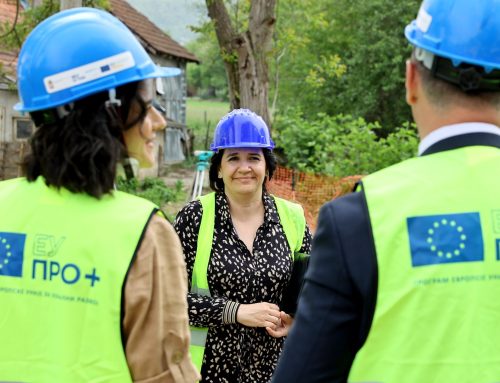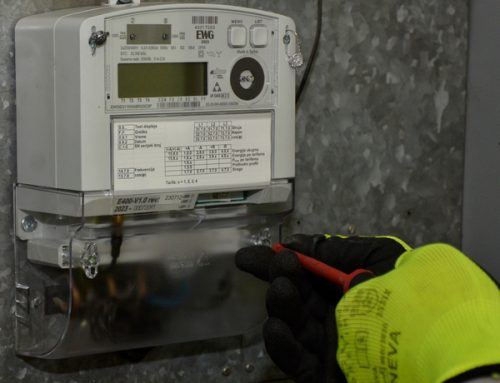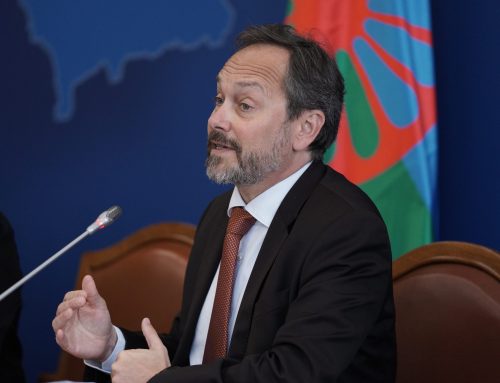Thank you very much, Alexandar. Good evening. I am happy to be back in Belgrade. And I’m grateful for the hospitality of President Vučić. As always.
And as always, I had to prepare particularly well for my visit to Serbia. Because I know that, in politics, you are as creative as Nicola Tesla was in science, as effective as Novak Djokovic has been in tennis, and – whenever you want to – as charming as your kolo dance.
The main reason for my visit is to prepare for the EU-Western Balkans Summit in Sofia on 17 May. And so I came with a clear message: the European Union is, and wants to remain the most reliable partner for Serbia and the entire Western Balkans region. At our summit in Sofia, we will reconfirm our readiness to continue the work on a European perspective for the region.
Today, I will not repeat all the slogans about the benefits of mutual cooperation. Just like you, I dislike propaganda. I also know that you hate it when someone tells you what you should do. You have proved many times in your history that you are tough, stubborn and independent. It is you – and you alone – who decide about your destiny. And I know that you will not allow this to change. As a Pole, born and raised under Communism, I well remember our admiration for your courage. We were in the same political bloc, but you were able to establish far greater political independence. In my generation, the legend about your heroic and effective resistance during the Second World War is still very much alive. As a Pole, I know very well what I am talking about. Since those days, even the Germans have known that it is better to be on your side than not. Today, it is clear for the whole world that the future of Serbia will be decided neither by Moscow, nor Washington. Neither by Ankara, nor by Brussels. It will be decided only by Belgrade. As a Pole and a convinced European, I want to tell you that the European Union is precisely the place where nobody imposes anything on anyone. We have built this community so that nobody would ever pay with their blood for their independence.
Therefore, it is worth looking at the EU as a project of a strategic dimension. Together we can win almost everything: prosperity, highest standards of public life, lasting democracy with the rule of law and freedom of speech, security, and above all mutual respect and preserving national identity.
I am standing here next to my friend and your President, Aleksandar Vučić. A flesh and blood Serbian, I think that to be more Serbian than him is impossible. My talks with him, on our cooperation and our common European path, are always a great challenge. I see a soulmate in him, I was myself in the past a football fan, always ready to fight for the honour of my club. We both know that in life and in politics you sometimes have to fight without a moment’s hesitation. But we also know that dialogue and an effort to understand each other is better than conflict.
Aleksandar Vučić is living proof that you can be at the same time a strong patriot and a reasonable pragmatist. I am not sure if you know that it is in fact him who initiated the ambitious vision of the economic integration of this region. Already now, without waiting for the conclusion of the accession process. Thanks to his vision and determination, the Sofia summit will also be about strengthening our economic cooperation.
Already now the EU is the biggest investor, the biggest donor and the biggest trading partner for the region. More than 60% of Serbia’s trade is with the EU, and more than 60% of foreign direct investment in Serbia comes from the EU. Still, we would like to deepen our economic relations further. Therefore, the Sofia summit will aim to substantially increase connectivity between the EU and the Western Balkans region. We want to boost cooperation where it will have the biggest benefit for all sides. This means investment in roads, railways, and smoother transitions at the borders, or in the skies, as was the case with the EIB agreement that we have just witnessed being signed. But it also means more student and cultural exchanges, and eventually a reduction of roaming charges.
During our meeting, we discussed the situation in the Western Balkans. I want to thank President Vučić for his personal engagement in the dialogue with Pristina. I know this is a difficult and emotionally charged issue. But it is also a strategic choice that will pay off in the long run.
Let me conclude by quoting one of your famous writers, Borislav Pekić, who devoted his life to the European values of democracy and freedom, and who 30 years ago wrote an article entitled “The Desire for Europe”, in which he said: “I wish the history of Serbia could also be its future, not only patriotic memory.” Since then, Serbia and the entire region have gone through difficult times. It’s now time for us to work together on a future in which Serbia will find its natural place as an integral part of a united Europe.
Thank you.




